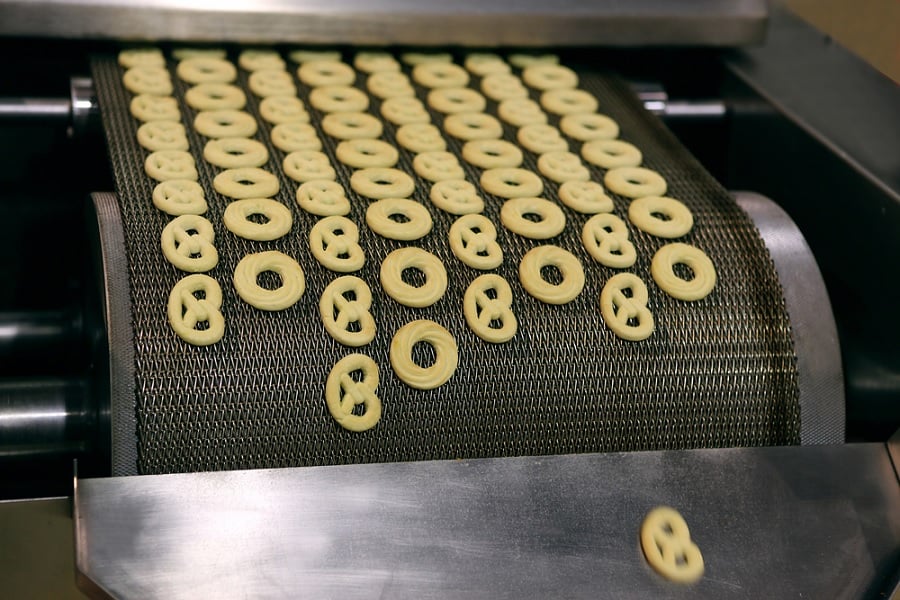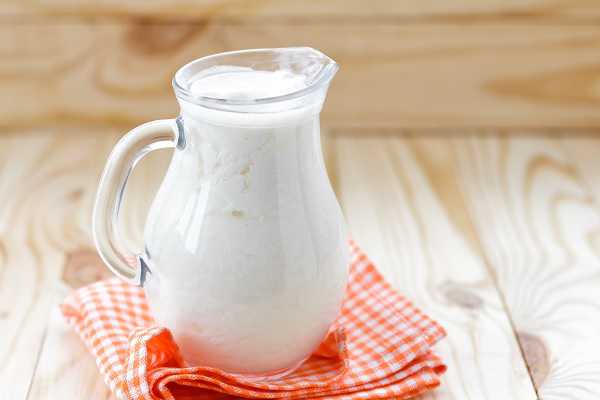The NOVA food classification system splits foods into four groups based on the levels of industrial processing. These groups are (1) unprocessed or minimally processed, (2) processed culinary ingredients, (3) processed foods, and (4) ultra-processed foods.
It is category four, the ultra-processed foods, that are the most dangerous to our health.
For the average Brit, 56% of calories come from processed foods! Overeating food from this group can increase weight gain and the risk of chronic diseases. Therefore, it is wise to reduce the amount of these foods in our diet.
Unfortunately, these foods are everywhere are eliminating these foods is easier said than done.
But thankfully, we are here to help. This guide covers everything you need to know about how to avoid ultra-processed foods in the UK and give your diet a healthy boost.
What Are Ultra-Processed Foods?
The first step in avoiding ultra-processed foods is to ensure we have a clear picture of what ultra-processed foods are.
Only this way can we make actionable changes to remove these unnatural and unhealthy foods from our diets.
According to the BBC, “ultra-processed food” is any food that contains chemical ingredients you wouldn’t add when cooking food at home.
These food additives are often colourants, sweeteners, and preservatives.
In the UK, the most commonly eaten ultra-processed foods include certain types of bread, pre-made ready meals, breakfast cereals, and processed meat products.
List of Ultra-Processed Foods to Avoid
There are many different ultra-processed foods available in the UK, far too many to provide a comprehensive list here!
However, we’ve listed some common examples below. This should give you a better idea of what ultra-processed products are.
You can also start eliminating any items on this list from your diet to reduce your intake of these unhealthy foods:
- Mass-produced bread
- Pre-packaged ready meals
- High-sugar breakfast cereals
- Sausages and reconstituted meat
- Buns, cakes, and biscuits
- Crisps and prepackaged snacks
- Sauces and dressings
- Flavoured crisps
- Soft drinks and sugary fruit juices
5 Ways to Avoid Ultra-Processed Foods in the UK
We now know what ultra-processed foods are and some common examples, but how can we avoid ultra-processed foods in the UK?
Below are five tips to help you cut out the bad stuff and switch to healthier, natural alternatives.
1. Learn how to recognise ultra-processed foods
Recognising ultra-processed foods can seem like an impossible task initially.
However, there are four things to look for which indicate food is factory-made and full of artificial additives.
Use these to assess all your common dietary components and eliminate them accordingly:
- Long list of ingredients: All-natural products are made from just a few ingredients. On the converse, ultra-processed foods typically have at least five different ingredients listed on their labels. To avoid ultra-processed foods, steer clear of these products.
- Unfamiliar ingredients: As mentioned, ultra-processed foods contain additives you’d never add to homecooked dishes. If ingredients you’ve never heard of and can’t pronounce are listed on the packaging, these are likely preservatives, sweeteners, colourants, or other artificial food additives.
- Red food labels: Ultra-processed foods typically contain high amounts of fat, sugar, and salt. Check the nutritional breakdown of all pre-packaged food you eat and avoid any with red colour coding – these are often ultra-processed food products.
- Extended shelf life: When fresh food has an extended shelf life, it often indicates preservatives have been added. In particular, products containing preservatives such as sodium benzoate, nitrates, sulphites, BHA, and BHT should be avoided.
2. Make homemade meals as often as possible
One way to easily eliminate many ultra-processed foods at once is to make as many homemade meals as possible.
Cooking with fresh ingredients and choosing precisely what foods you include in your recipes is an easy way to avoid unhealthy meals.
Use plenty of fresh fruits and vegetables, fresh meat and fish, and whole foods.
3. Snack on wholefoods instead of pre-packaged snacks
Many of the ultra-processed foods we eat don’t come from main meals, they come from snacks!
Think about how many crisps, biscuits, cakes, and cereal bars we as a nation munch on between meals.
We can’t resist dunking a biscuit in our tea or tucking into a salty bag of Walkers’. However, these are all examples of ultra-processed foods that can easily be avoided.
Struggling to find healthy snack alternatives? Some great ideas include fresh fruit, cucumber sticks, raw vegetables, nuts and seeds, and boiled eggs.
4. Avoid eating fast food
One of the worst sources of ultra-processed food is fast food, such as the iconic McDonald’s cheeseburger or chicken nuggets.
These products contain several ultra-processed ingredients. The meat itself is reconstituted and thus ultra-processed, the buns used for burgers are packed with preservatives, and their soft drinks are another ultra-processed product.
We aren’t saying you cannot eat meals out, and it’s great to enjoy not cooking for once. However, choose healthier restaurants that focus on nutritional products and natural ingredients.
If you’re set on eating fast food, make this an occasional treat rather than the norm.
5. Don’t forget about ultra-processed drinks
Many of us get so fixated on the food we are eating that we forget about the drinks we are consuming.
Unfortunately, many drinks fall into the ultra-processed food category. This includes frozen coffee drinks, energy drinks, sugary soft drinks, and long-life fruit juice.
To avoid ultra-processed foods, you need to switch your solids and liquids.
Easy Switches to Avoid Ultra-Processed Foods
Even with all the above information, identifying ultra-processed food can still be challenging. After identifying the culprits, you then need to find a suitable healthy alternative.
To give you some inspiration, here is a list to help you make unprocessed, nutritious swaps:
- Swap sweeteneded breakfast cereals for homemade oatmeal
- Swap sugary soda for carbonated water and fresh fruit juice
- Swap industrialiseded white bread for homemade bread
- Swap long-life fruit juice for freshly squeezed fruit juice
- Swap fried chicken for home-roasted chicken
- Swap cured meats and ham for fresh pork cutlets
- Swap beef burgers for fresh beef steak or roast beef
- Swap flavoured crisps for pumpkin seeds or sunflower seeds

Hannah is a freelance content writer passionate about natural health, mindfulness, and the environment. She shares her enthusiasm for a conscious lifestyle on Naturaler, inspiring others to take the steps towards a more natural and fulfilling life



